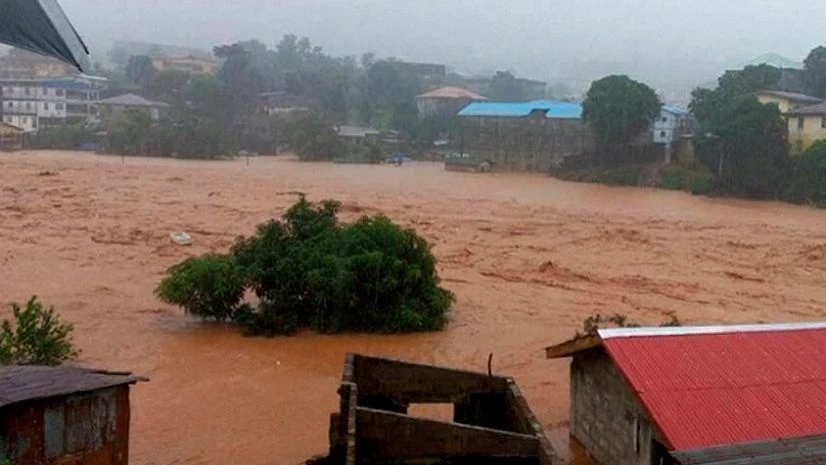The first mass burials of victims of Sierra Leone's devastating floods and mudslides will take place on Thursday, as blame grows over government "inaction" over deforestation and poor urban planning.
As it emerged that at least 105 of the dead were children, citizens and experts alike questioned why the government of President Ernest Bai Koroma had not done more to tackle illegal construction in the overcrowded capital Freetown.
Aid organisations have warned that the rainy season is not yet over and that more flooding could arrive at any moment in the west African coastal city of around one million people.
More From This Section
Although the death toll is officially 300, rescue workers privately agree the toll is far higher. An unofficial morgue toll put the number of deaths from at 400.
Citizens were given the deadline of Wednesday evening to identify their loved ones at the overflowing central morgue, and the first mass burials will begin at 3 pm (1500 GMT) in Waterloo, a nearby town where many victims of the Ebola crisis that hit the nation in 2014 were also laid to rest.
The burial of bags filled with body parts has already taken place but Thursday marks the first burials of corpses in a ceremony to be attended by Koroma.
For the thousands of survivors left homeless, UN agencies distributed food and hygiene kits to those sheltering in government centres and in the homes of neighbours and family members.
"We have no place now to sleep, only in a neighbour's house," said Abdul Bendu, in the Pentagon community, which sits directly below the devastated hilltop village of Regent.
He estimated that 100 people from his community alone had been killed by mud, falling rocks and floodwaters.
Others began to ask why such a tragedy was allowed to happen in the first place, given the clockwork regularity of annual flooding in Freetown.
"I think it's the deforestation," said resident Samuel Lackoh, speaking to AFP in Pentagon.
In recent years, trees have been cut down from the Western peninsular forest on Freetown's limits, with everything from shacks to mansions springing up on the slopes.
Jaime Hitchen, an expert with the Africa Research Institute, told AFP that poor urban planning had been a problem for years, but that the government response had "broadly been one of inaction".
"Particularly in the areas around Regent construction of houses illegally is being undertaken at all levels of society with impunity," he said in an email to AFP.
Identifying deficiencies in waste management, preventing deforestation, urban planning and the provision of decent housing, Hitchen said "a problem of politics" meant that the city's drains were blocked and dump sites were full.
"There is no urban planning to speak of in the city," he added.
The government has said that in the light of the catastrophe, "relocation and opening up of a new settlement around the Freetown peninsula" would be considered, but similar measures have failed in the past as people seek to live close to the city centre for work.

)
